Paul Finch - Stronghold
Здесь есть возможность читать онлайн «Paul Finch - Stronghold» весь текст электронной книги совершенно бесплатно (целиком полную версию без сокращений). В некоторых случаях можно слушать аудио, скачать через торрент в формате fb2 и присутствует краткое содержание. Жанр: Ужасы и Мистика, на английском языке. Описание произведения, (предисловие) а так же отзывы посетителей доступны на портале библиотеки ЛибКат.
- Название:Stronghold
- Автор:
- Жанр:
- Год:неизвестен
- ISBN:нет данных
- Рейтинг книги:3 / 5. Голосов: 1
-
Избранное:Добавить в избранное
- Отзывы:
-
Ваша оценка:
- 60
- 1
- 2
- 3
- 4
- 5
Stronghold: краткое содержание, описание и аннотация
Предлагаем к чтению аннотацию, описание, краткое содержание или предисловие (зависит от того, что написал сам автор книги «Stronghold»). Если вы не нашли необходимую информацию о книге — напишите в комментариях, мы постараемся отыскать её.
Stronghold — читать онлайн бесплатно полную книгу (весь текст) целиком
Ниже представлен текст книги, разбитый по страницам. Система сохранения места последней прочитанной страницы, позволяет с удобством читать онлайн бесплатно книгу «Stronghold», без необходимости каждый раз заново искать на чём Вы остановились. Поставьте закладку, и сможете в любой момент перейти на страницу, на которой закончили чтение.
Интервал:
Закладка:
Of course, even concentrating on these horrible scenes was preferable to watching the mass of dead and decayed flesh shuffling onto the bluff around her. On first arriving here, she'd tried to steel herself, to face the reality of what she was doing. Initially it hadn't been so bad — one stumbling, ragged figure had seemed much like another if you avoided looking at its face. But it wasn't long before she was noticing the various methods by which these pitiful forms had first been sent from this world: the nooses knotted at their throats, the spears that spitted them, the crazily angled torsos where spines had been broken.
In some cases it had hardened her resolve, reminding her in a way words never could of the depredations inflicted on her people. An old man — eyeless, tongueless, waving stumps for hands — made her weep. A young man — naked, a festering cavity where his genitals should be, a beam across his shoulders, his wrists nailed to either end of it, showing that he'd not just been emasculated but crucified as well — made her seethe with outrage. But as one apparition after another tottered past, it became increasingly difficult to focus on the injustice. A naked pregnant woman, her swollen belly slit open and an infant's arm protruding — and twitching — made the countess's gorge rise. A child torn apart by war dogs, and even now in death unintelligibly wailing — as though for a mother that would never answer its cries of pain and fear — made her clamp a hand to her eyes. A few hours later, even more grotesque figures had begun to appear: those who had died before this war — the diseased, the crippled, the starved. In some cases they had died months before. She saw stick limbs, worm-eaten ribs, skulls without scalps, faces that were green, faces that were black, faces that were hanging from the bone.
A tide of raddled flesh and filthy, leprous rags now jostled on all sides of her. The stench was unbearable, eye-watering even through her scented veil. She did her best to remain aloof, as Gwyddon and his acolytes were. But she could no longer look at these poor, corrupted husks. If they made contact with her stirrup-clad boots, merely brushing against them, she cringed. Her mount, which had once belonged to an English knight and had seen much battle, had become skittish, revolted by the smell and alarmed by the meaningless, mumbling discord of the dead. Every so often an instruction from Gwyddon — delivered in the hard pagan tongue of ancient times, rather than the melodious voice of her people now — would despatch fresh cohorts downhill towards the bridge. And how relieved Countess Madalyn was to see the backs of these, though always more would emerge from the woods and hills at her rear, and flow into the gaps.
She tried to console herself with thoughts of romantic myths. The histories of the Welsh had always been notable for brutality and malevolence. The fair Rhiannon tricked her fiancE Gwawl into a magic bag, where he was bludgeoned almost to death by her lover Pwyll, only at which point did he finally agree to release her from the engagement. The beautiful Arianrhod, angered that her family had discovered she was pregnant out of wedlock, cursed her own child, Lleu, for the entirety of his life, the ultimate culmination of which was his marriage to the hag Blodeuwedd, who gleefully murdered him. And yet it was no solace really — not really — for these were nought but fancies and folklore. This was altogether different. These lumbering wrecks, these sad, rotting travesties who once had been resting in God's sweet earth, who in most cases had paid their dues with agonising deaths and yet now had been called to die again and again and again — they were all too real.
The worst incident came in the middle of the day.
The largest projectiles so far impacted on the crenels of the castle's south wall and the roars of battle still echoed from the roof of its Barbican. But the countess was weary with it, reeling with the stench of death. In a moment of weakness, she happened to glance to her right. That was all it was — a glance, very fleeting. And yet, inexorably, as though fated, her eyes were drawn to someone she knew. Before she could think, his name broke from her lips.
"Kye!"
Again, fresh cohorts of the dead had been sent downhill to cross the castle bridge and follow the berm path, and her former bodyguard was going with them. Yet, unlike those others around him, Kye seemed to hear her.
He turned slowly — painfully slowly — to look.
Overjoyed, she dismounted and ran forward, oblivious to the carrion shapes that she thrust out of her way. Kye was a typically handsome son of Wales: tall, huge of build, with his great black beard, black bushy hair and piercing blue eyes.
"Kye!" she said again, elated.
She'd seen him struck down, but she must have been mistaken. He'd been struck, yes, but he'd survived. His even features were unmarked by flame or blade, unbitten by worm. He still wore his gleaming mail habergeon and the red leather corselet over the top of it. His eyes seemed to fix on her, their gaze clear and focussed. As she approached, she yanked back her hood and tore off her veil so that he would recognise her.
He extended a hand of friendship. She opened her arms to embrace him.
And then — horror, despair.
For he pushed her aside, and reached instead for the dragon standard in her horse's pannier.
Some soldierly instinct remained in Kye's curdled brain, some vague understanding that, though he was a combatant, he'd come to this place of battle without weapon or insignia. Now he remedied this, drawing the great banner free. Wielding it before him with both hands, he turned around and continued down the hill with his new comrades. As he went he half-stumbled on a boulder and his head fell to one side, lying flat on his shoulder. A crimson chasm yawned in the side of his neck.
Countess Madalyn tottered away, her veil clasped to her face again, now to stem a flood of tears.
Beyond the brow of the bluff, in a small birch wood, stood a gated stockade and within that a pavilion of gold silk decked with the dancing red lions of Powys. Inside this, the rough grass was laid with rugs and carpets, and there was a banquet table on which food and other refreshments were spread. A smaller table bore inkpots, quills and maps of the castle. In a rear compartment, there was a bed with a lighted brazier to one side, and on the other a silver crucifix suspended from a pole.
That evening, when Gwyddon entered, the countess was on her knees in front of this holy symbol, her hands joined in fervent prayer. Tears still streaked her pale cheeks.
"Countess," he said slowly, "might I remind you… the Cauldron of Regeneration, for all that it calls on great and unknown forces, does not signify the conquest of death."
"No, Gwyddon, it doesn't." She was breathing slowly, heavily. Her brow was damp with perspiration, her eyes red with weeping. "It signifies the conquest of life, and all that is fine and sweet and good in this world."
"Countess, we can live our fine, sweet lives when the enemy is destroyed. But to do that we need soldiers. And I have provided you with an inexhaustible supply."
"Leave me, Gwyddon." She went back to her prayers, but the druid did not leave. He rubbed at his beard.
"Tell me, ma-am, did your Jesus Christ not rise from the dead to show your people the way?"
"How dare you!" She whirled around. "How dare you mention our Saviour's name in this place! You are a necromancer, sir. This thing you have made is a pact with Satan, for which I fear I will pay with my immortal soul."
"Even if that were true, isn't it a price worth paying when so many others will be saved?"
She struggled to reply. It was difficult to counter this point even if she'd wanted to.
Читать дальшеИнтервал:
Закладка:
Похожие книги на «Stronghold»
Представляем Вашему вниманию похожие книги на «Stronghold» списком для выбора. Мы отобрали схожую по названию и смыслу литературу в надежде предоставить читателям больше вариантов отыскать новые, интересные, ещё непрочитанные произведения.
Обсуждение, отзывы о книге «Stronghold» и просто собственные мнения читателей. Оставьте ваши комментарии, напишите, что Вы думаете о произведении, его смысле или главных героях. Укажите что конкретно понравилось, а что нет, и почему Вы так считаете.
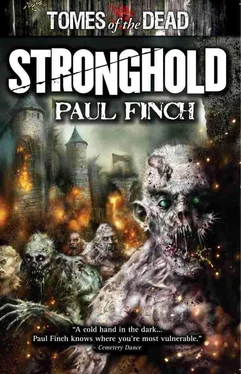
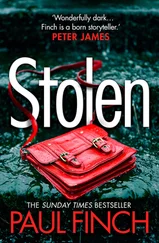
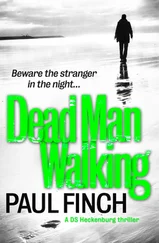
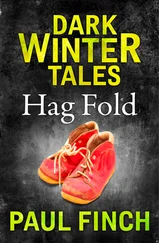
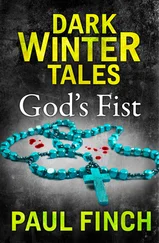
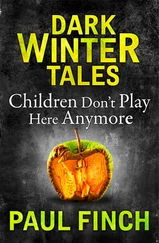
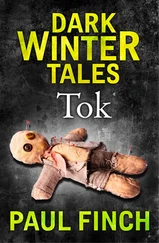
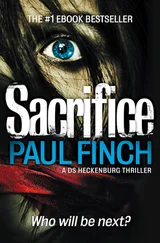
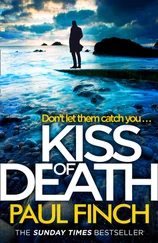
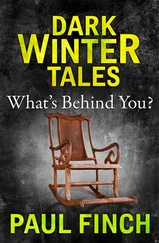

![Paul Finch - A Wanted Man [A PC Heckenburg Short Story]](/books/702381/paul-finch-a-wanted-man-a-pc-heckenburg-short-sto-thumb.webp)
